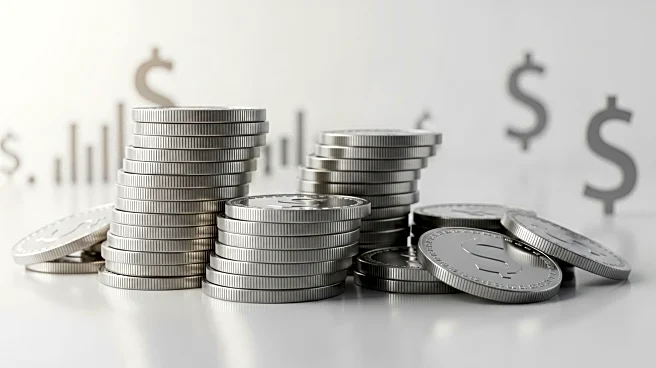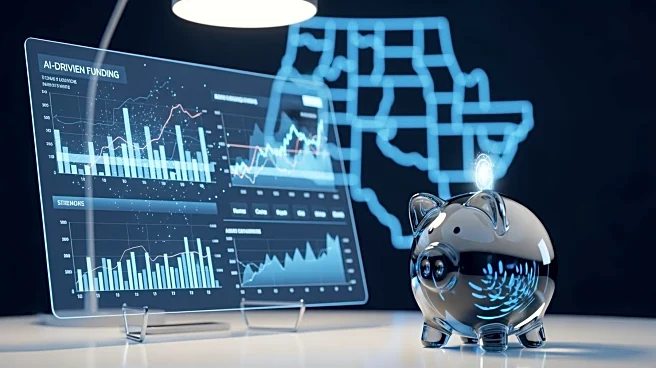What's Happening?
American companies are engaging in record levels of share buybacks, even as stock prices reach all-time highs. Corporate buyback announcements in 2025 have surpassed $1 trillion, marking the fastest pace ever recorded. This activity is seen as a sign of management confidence in the companies' future prospects. Buybacks reduce the number of outstanding shares, potentially boosting stock prices and improving financial metrics like earnings per share. Despite a slowing economy and uncertain outlook, companies are leveraging buybacks to maintain stock market momentum, with S&P 500 companies experiencing double-digit earnings growth.
Why It's Important?
The surge in buybacks is a critical factor in sustaining high stock prices, providing a buffer against economic uncertainties such as inflation and tariff impacts. While buybacks can indicate strong corporate health, they also face criticism for potentially inflating stock prices artificially and diverting funds from other investments like workforce development and innovation. The Biden administration has introduced a tax on buybacks to address these concerns, aiming to ensure fair taxation and reduce the deficit. The ongoing buyback trend highlights the disconnect between stock market performance and broader economic conditions.
Beyond the Headlines
The record buybacks raise questions about corporate priorities and the long-term implications for economic growth. Critics argue that buybacks prioritize short-term stock price gains over sustainable business practices. The introduction of a buyback tax reflects growing scrutiny of corporate financial strategies and their impact on economic inequality. As companies continue to navigate economic challenges, the role of buybacks in shaping market dynamics and corporate governance will remain a topic of debate.









